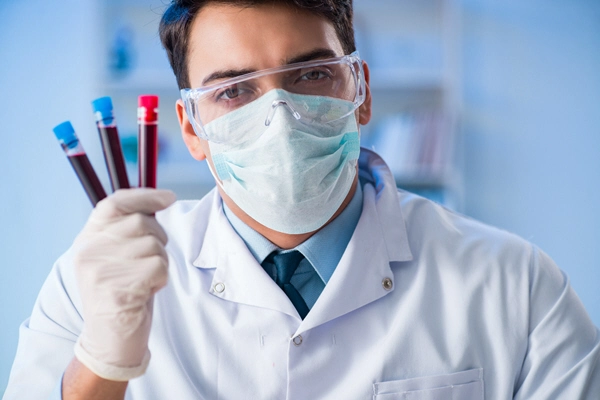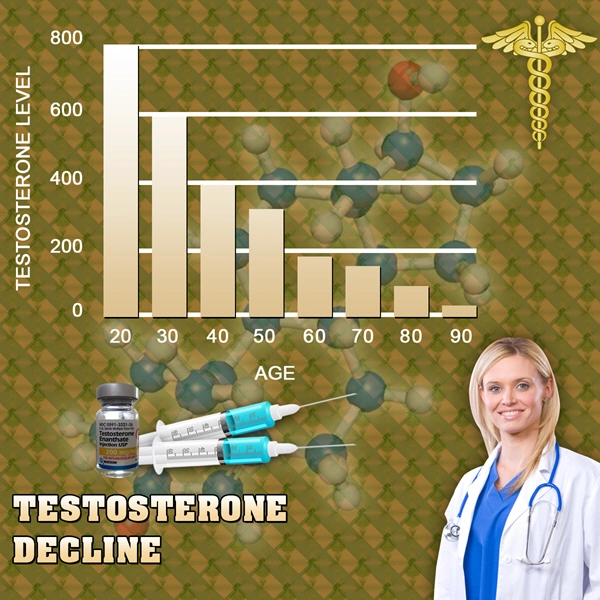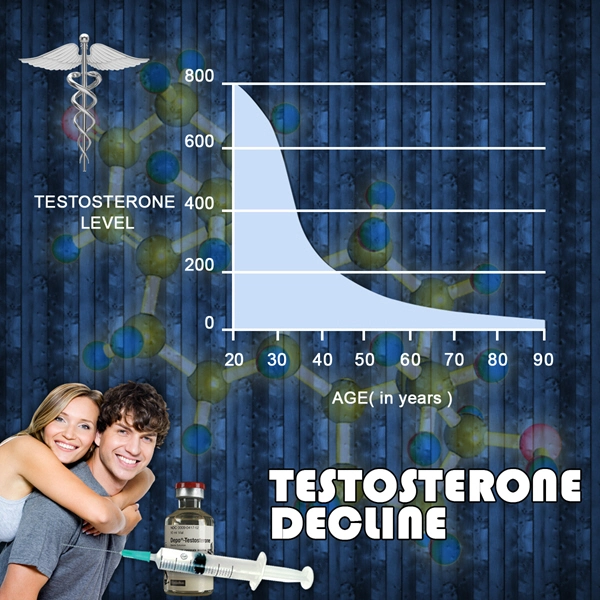Introduction
Testosterone deficiency syndrome (TDS), also known as hypogonadism, is a condition that can significantly impact the quality of life for American males. Characterized by abnormally low levels of testosterone, TDS can lead to a myriad of health issues, including diminished muscle mass and strength. Recent studies utilizing advanced imaging techniques have shed light on the extent to which TDS affects muscle physiology. This article explores the findings of such research, emphasizing the importance of early diagnosis and intervention to mitigate the muscular consequences of TDS in American males.
Understanding Testosterone Deficiency Syndrome
Testosterone, the primary male sex hormone, plays a crucial role in the development and maintenance of muscle mass and strength. TDS occurs when the body fails to produce adequate levels of testosterone, which can be due to problems with the testes or the pituitary gland. Symptoms of TDS may include decreased libido, erectile dysfunction, fatigue, and, notably, a reduction in muscle mass and strength. The prevalence of TDS increases with age, affecting approximately 20% of men over the age of 60 in the United States.
Advanced Imaging Techniques in TDS Research
Recent advancements in imaging technology, such as magnetic resonance imaging (MRI) and dual-energy X-ray absorptiometry (DXA), have provided researchers with powerful tools to assess muscle mass and quality in individuals with TDS. These techniques offer detailed insights into muscle composition, allowing for a more accurate evaluation of the impact of testosterone deficiency on muscle health.
Impact of TDS on Muscle Mass and Strength
Studies utilizing advanced imaging have demonstrated a clear link between TDS and reduced muscle mass and strength. MRI scans have revealed that men with TDS exhibit lower muscle volume and cross-sectional area compared to their counterparts with normal testosterone levels. Furthermore, DXA scans have shown that TDS is associated with decreased lean body mass and increased fat mass, contributing to sarcopenia, or age-related muscle loss.
Mechanisms Behind Muscle Deterioration in TDS
The mechanisms by which TDS leads to muscle deterioration are multifaceted. Testosterone is known to stimulate protein synthesis in muscle cells, promoting muscle growth and repair. In the absence of sufficient testosterone, protein synthesis is impaired, leading to muscle atrophy. Additionally, testosterone influences the expression of genes involved in muscle function, further exacerbating muscle loss in TDS.
Clinical Implications and Treatment Strategies
The findings from advanced imaging studies underscore the importance of early detection and treatment of TDS to preserve muscle health in American males. Hormone replacement therapy (HRT) with testosterone has been shown to improve muscle mass and strength in men with TDS. Regular monitoring through advanced imaging can help tailor treatment plans to individual needs, ensuring optimal outcomes.
Lifestyle Interventions and Muscle Health
In addition to medical interventions, lifestyle modifications play a critical role in managing TDS and its impact on muscle health. Regular resistance training, a balanced diet rich in protein, and adequate sleep can help mitigate the effects of TDS on muscle mass and strength. American males with TDS are encouraged to adopt a comprehensive approach to their health, combining medical treatment with lifestyle changes to achieve the best possible results.
Conclusion
Testosterone deficiency syndrome poses a significant challenge to the muscle health of American males, with advanced imaging techniques providing valuable insights into its impact. By understanding the mechanisms behind muscle deterioration in TDS and implementing effective treatment and lifestyle strategies, it is possible to improve muscle mass and strength, enhancing overall quality of life. As research continues to evolve, the hope is that even more targeted and effective interventions will become available, helping American males combat the muscular consequences of TDS.

- Understanding and Managing Testosterone Deficiency Syndrome in American Men [Last Updated On: February 26th, 2025] [Originally Added On: February 26th, 2025]
- Testosterone Deficiency Syndrome: Hormone Therapy Benefits and Considerations for American Males [Last Updated On: March 18th, 2025] [Originally Added On: March 18th, 2025]
- Environmental Toxins Linked to Testosterone Deficiency in American Males: Impacts and Mitigation [Last Updated On: March 18th, 2025] [Originally Added On: March 18th, 2025]
- Stress and Testosterone Deficiency in American Males: Causes, Symptoms, and Management [Last Updated On: March 19th, 2025] [Originally Added On: March 19th, 2025]
- Alcohol's Impact on Testosterone Levels and TDS in American Males: A Comprehensive Analysis [Last Updated On: March 19th, 2025] [Originally Added On: March 19th, 2025]
- Smoking's Impact on Testosterone Deficiency Syndrome in American Males: A Comprehensive Analysis [Last Updated On: March 20th, 2025] [Originally Added On: March 20th, 2025]
- Testosterone Levels: Importance of Regular Check-ups for American Males [Last Updated On: March 20th, 2025] [Originally Added On: March 20th, 2025]
- Testosterone Deficiency in American Men: Impacts on Mood and Holistic Management Strategies [Last Updated On: March 21st, 2025] [Originally Added On: March 21st, 2025]
- Testosterone Deficiency Syndrome: Impact on Muscle Mass and Management Strategies for American Men [Last Updated On: March 21st, 2025] [Originally Added On: March 21st, 2025]
- Testosterone Deficiency Syndrome: Impacts and Management in American Men's Prostate Health [Last Updated On: March 21st, 2025] [Originally Added On: March 21st, 2025]
- Testosterone Deficiency and Sleep Apnea: Impacts and Management for American Males [Last Updated On: March 22nd, 2025] [Originally Added On: March 22nd, 2025]
- Testosterone Deficiency Syndrome: Impacts on Joint Health and Management Strategies [Last Updated On: March 22nd, 2025] [Originally Added On: March 22nd, 2025]
- Understanding and Managing Testosterone Deficiency Syndrome in American Men [Last Updated On: March 22nd, 2025] [Originally Added On: March 22nd, 2025]
- Testosterone Deficiency Syndrome: Impacts on Libido and Mental Health in American Men [Last Updated On: March 22nd, 2025] [Originally Added On: March 22nd, 2025]
- Understanding and Managing Testosterone Deficiency in American Men: Impacts and Solutions [Last Updated On: March 23rd, 2025] [Originally Added On: March 23rd, 2025]
- Testosterone Deficiency and Depression: Impact and Management in American Men [Last Updated On: March 23rd, 2025] [Originally Added On: March 23rd, 2025]
- Diet Soda Consumption Linked to Lower Testosterone Levels in American Men [Last Updated On: March 23rd, 2025] [Originally Added On: March 23rd, 2025]
- Vitamin D's Role in Managing Testosterone Deficiency in American Males [Last Updated On: March 23rd, 2025] [Originally Added On: March 23rd, 2025]
- Ashwagandha: A Natural Remedy for Testosterone Deficiency in American Men [Last Updated On: March 23rd, 2025] [Originally Added On: March 23rd, 2025]
- Testosterone Deficiency Syndrome: Impacts and Management of Skin Health in American Men [Last Updated On: March 23rd, 2025] [Originally Added On: March 23rd, 2025]
- Omega-3 Fatty Acids: A Potential Aid in Managing Testosterone Deficiency in American Males [Last Updated On: March 24th, 2025] [Originally Added On: March 24th, 2025]
- Testosterone Deficiency in American Men: Impacts on Vision and Eye Health [Last Updated On: March 24th, 2025] [Originally Added On: March 24th, 2025]
- Testosterone Deficiency in American Men: Impacts and Management of Hair Loss [Last Updated On: March 24th, 2025] [Originally Added On: March 24th, 2025]
- Chronic Illness and Testosterone Deficiency Syndrome in American Males: Impacts and Management [Last Updated On: March 24th, 2025] [Originally Added On: March 24th, 2025]
- Testosterone Deficiency Syndrome: Impacts on Immune Function and Management Strategies [Last Updated On: March 24th, 2025] [Originally Added On: March 24th, 2025]
- Soy Consumption and Testosterone Levels in American Males with TDS: A Comprehensive Analysis [Last Updated On: March 24th, 2025] [Originally Added On: March 24th, 2025]
- Testosterone Deficiency in American Men: Impacts on Cognitive Function and Mental Health [Last Updated On: March 25th, 2025] [Originally Added On: March 25th, 2025]
- Zinc's Crucial Role in Managing Testosterone Deficiency in American Men [Last Updated On: March 25th, 2025] [Originally Added On: March 25th, 2025]
- Testosterone Deficiency Syndrome: Impacts on Liver Health and Management Strategies [Last Updated On: March 25th, 2025] [Originally Added On: March 25th, 2025]
- Blue Light Exposure and Its Impact on Testosterone Levels in American Men with TDS [Last Updated On: March 25th, 2025] [Originally Added On: March 25th, 2025]
- Weight Training Benefits for Men with Testosterone Deficiency Syndrome [Last Updated On: March 25th, 2025] [Originally Added On: March 25th, 2025]
- Testosterone Deficiency Syndrome: Impacts and Management for American Men's Kidney Health [Last Updated On: March 26th, 2025] [Originally Added On: March 26th, 2025]
- Testosterone Deficiency and Pancreatic Health: Critical Insights for American Men [Last Updated On: March 26th, 2025] [Originally Added On: March 26th, 2025]
- Magnesium's Role in Managing Testosterone Deficiency Syndrome in American Males [Last Updated On: March 26th, 2025] [Originally Added On: March 26th, 2025]
- Air Pollution's Impact on Testosterone Levels and TDS in American Males [Last Updated On: March 26th, 2025] [Originally Added On: March 26th, 2025]
- Testosterone Deficiency and Anemia: Critical Health Concerns for American Males [Last Updated On: March 27th, 2025] [Originally Added On: March 27th, 2025]
- Chronic Stress Impact on Testosterone Levels and TDS in American Males [Last Updated On: March 27th, 2025] [Originally Added On: March 27th, 2025]
- Testosterone Deficiency Syndrome: Impacts on Body Composition in American Males [Last Updated On: March 27th, 2025] [Originally Added On: March 27th, 2025]
- Testosterone Deficiency Syndrome: Impacts and Management in American Male Athletes [Last Updated On: March 27th, 2025] [Originally Added On: March 27th, 2025]
- High-Fat Diets and Testosterone Levels: Impact on American Males with TDS [Last Updated On: March 27th, 2025] [Originally Added On: March 27th, 2025]
- Pesticide Exposure Linked to Testosterone Deficiency in American Men: Risks and Prevention [Last Updated On: March 27th, 2025] [Originally Added On: March 27th, 2025]
- Shift Work's Impact on Testosterone and TDS Risk in American Males [Last Updated On: March 27th, 2025] [Originally Added On: March 27th, 2025]
- Testosterone Deficiency Syndrome: Impacts on Hearing Health in American Males [Last Updated On: March 27th, 2025] [Originally Added On: March 27th, 2025]
- Testosterone Deficiency Linked to Increased Risk of Periodontal Disease in American Males [Last Updated On: March 27th, 2025] [Originally Added On: March 27th, 2025]
- Testosterone Deficiency in American Males: Impacts on Memory and Cognitive Health [Last Updated On: March 27th, 2025] [Originally Added On: March 27th, 2025]
- Boron's Role in Managing Testosterone Deficiency Syndrome in American Males [Last Updated On: March 28th, 2025] [Originally Added On: March 28th, 2025]
- EMFs and Testosterone Levels in American Males with TDS: Exploring the Link [Last Updated On: March 28th, 2025] [Originally Added On: March 28th, 2025]
- Plasticizers' Impact on Testosterone Levels and TDS in American Men [Last Updated On: March 28th, 2025] [Originally Added On: March 28th, 2025]
- Testosterone Deficiency Linked to Gallbladder Disease: Insights for American Males [Last Updated On: March 29th, 2025] [Originally Added On: March 29th, 2025]
- Testosterone Deficiency and Thyroid Function: A Comprehensive Guide for American Males [Last Updated On: March 29th, 2025] [Originally Added On: March 29th, 2025]
- Heavy Metal Exposure Linked to Testosterone Decline in American Men [Last Updated On: March 30th, 2025] [Originally Added On: March 30th, 2025]
- Fenugreek: A Promising Natural Remedy for Testosterone Deficiency Syndrome in Men [Last Updated On: March 30th, 2025] [Originally Added On: March 30th, 2025]
- Noise Pollution's Impact on Testosterone Levels in American Males: A Comprehensive Analysis [Last Updated On: April 1st, 2025] [Originally Added On: April 1st, 2025]
- Tribulus Terrestris: A Natural Approach to Managing Testosterone Deficiency in American Men [Last Updated On: April 2nd, 2025] [Originally Added On: April 2nd, 2025]
- Testosterone Deficiency Syndrome: Symptoms, Adrenal Health, and Treatment for American Males [Last Updated On: April 3rd, 2025] [Originally Added On: April 3rd, 2025]
- Testosterone Deficiency Syndrome: Impact, Diagnosis, and Treatment in American Men [Last Updated On: April 5th, 2025] [Originally Added On: April 5th, 2025]
- Testosterone Deficiency and Parathyroid Health: Impacts on American Males' Well-being [Last Updated On: April 7th, 2025] [Originally Added On: April 7th, 2025]
- Pineal Gland's Role in Testosterone Deficiency Syndrome Among American Males [Last Updated On: April 9th, 2025] [Originally Added On: April 9th, 2025]
- Testosterone Deficiency Syndrome: Hypothalamic Impact and Management in American Men [Last Updated On: April 9th, 2025] [Originally Added On: April 9th, 2025]
- DHEA Supplementation: A Promising Approach to Combat Testosterone Deficiency in American Males [Last Updated On: April 9th, 2025] [Originally Added On: April 9th, 2025]
- Fluoride Exposure and Testosterone Levels: Implications for TDS in American Men [Last Updated On: April 10th, 2025] [Originally Added On: April 10th, 2025]
- Phthalates' Impact on Testosterone Levels in American Males: A Public Health Concern [Last Updated On: April 10th, 2025] [Originally Added On: April 10th, 2025]
- Testosterone Deficiency and Respiratory Health: Insights for American Males [Last Updated On: April 10th, 2025] [Originally Added On: April 10th, 2025]
- Ginseng's Potential in Managing Testosterone Deficiency in American Men: A Review [Last Updated On: April 11th, 2025] [Originally Added On: April 11th, 2025]
- TDS in American Men: Impacts on Urinary Health and Management Strategies [Last Updated On: April 11th, 2025] [Originally Added On: April 11th, 2025]
- PFCs and Testosterone Deficiency: Impacts on American Males' Hormonal Health [Last Updated On: April 11th, 2025] [Originally Added On: April 11th, 2025]
- Testosterone Deficiency Syndrome: Impacts on Gastrointestinal Health and Management Strategies [Last Updated On: April 12th, 2025] [Originally Added On: April 12th, 2025]
- Bisphenol A Exposure Linked to Reduced Testosterone in American Men [Last Updated On: April 13th, 2025] [Originally Added On: April 13th, 2025]
- Shilajit: A Natural Remedy for Testosterone Deficiency in American Men [Last Updated On: April 15th, 2025] [Originally Added On: April 15th, 2025]
- Testosterone Deficiency in American Men: Metabolic Risks and Management Strategies [Last Updated On: April 15th, 2025] [Originally Added On: April 15th, 2025]
- Phytoestrogens' Impact on Testosterone Levels in American Men with TDS [Last Updated On: April 16th, 2025] [Originally Added On: April 16th, 2025]
- Testosterone Deficiency Syndrome: Impacts and Management for American Males' Reproductive Health [Last Updated On: April 16th, 2025] [Originally Added On: April 16th, 2025]
- Testosterone Deficiency Linked to Autoimmune Disorders in American Males: Insights and Implications [Last Updated On: April 17th, 2025] [Originally Added On: April 17th, 2025]
- Cordyceps: A Natural Solution for Testosterone Deficiency in American Males [Last Updated On: April 17th, 2025] [Originally Added On: April 17th, 2025]
- Parabens' Impact on Testosterone Levels and TDS in American Males: A Review [Last Updated On: April 17th, 2025] [Originally Added On: April 17th, 2025]
- Triclosan Exposure and Testosterone Levels in American Men with TDS: A Concerning Link [Last Updated On: April 19th, 2025] [Originally Added On: April 19th, 2025]
- Testosterone Deficiency in American Males: Impact of Endocrine Disruptors and Management Strategies [Last Updated On: April 19th, 2025] [Originally Added On: April 19th, 2025]
- Testosterone Deficiency in American Males: Neurological Impacts and Management Strategies [Last Updated On: April 20th, 2025] [Originally Added On: April 20th, 2025]
- Organophosphate Pesticides Linked to Testosterone Deficiency in American Males [Last Updated On: April 21st, 2025] [Originally Added On: April 21st, 2025]
- TDS in American Males: Prevalence, Sexual Dysfunction, and Management Strategies [Last Updated On: April 22nd, 2025] [Originally Added On: April 22nd, 2025]



List of USA state clinics - click a flag below for blood testing clinics.
Word Count: 593


















































